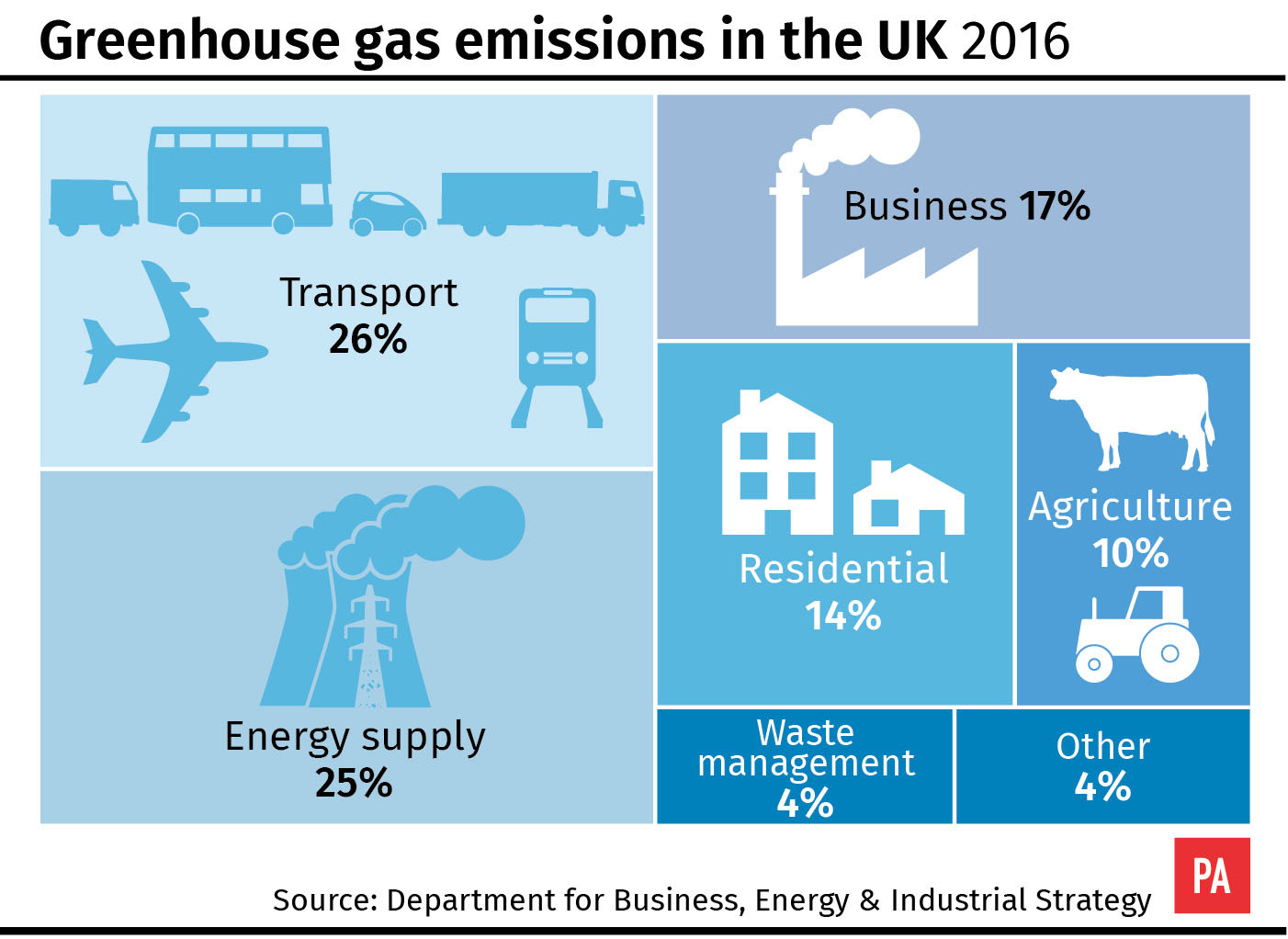
Transport became the largest sector for greenhouse gas pollution in 2016 as emissions overall fell 5% in a year, official statistics show.
Carbon dioxide, the main greenhouse gas, was down 6% between 2015 and 2016, with the reductions in pollution mostly down to a decrease in the use of coal for electricity generation, the data from the Business Department shows.
Emissions from energy supply plunged 17% year-on-year, while transport emissions rose 2% in 2016 and emissions from homes were up 4%.

Transport now accounts for 26% of the UK’s greenhouse gas emissions, compared with 25% coming from energy supplies.
Since 1990, greenhouse gas emissions have fallen 41% in the UK, while carbon dioxide is down 36%.
But while emissions from energy supplies are down 57% since then, transport emissions are only down 2%, making it the worst performing sector.
The Government has announced ambitions to end sales of new conventional petrol and diesel cars and vans by 2040 as part of efforts to tackle climate change and air pollution.
The Committee on Climate Change, which advises the Government on meeting its long term legally binding climate targets, has said transport emissions must fall by 44% by 2030 to keep the UK on track to meet its goals.
The committee has called for 60% of new cars and vans to be ultra low emissions by 2030, most of which will be electric, as well as more action to make conventional vehicles cleaner and encourage more walking, cycling and public transport.
Friends of the Earth climate campaigner Simon Bullock said: “Despite this welcome fall in climate-wrecking pollution, the transport sector is still failing to play its part in slashing emissions.
“Transport Secretary Chris Grayling must play catch-up fast – his department can’t continue to crawl along in the slow lane when it comes to tackling climate change.
“And if we want to play our part in international efforts to prevent global warming, we must do even more, raising our ambition to match the Paris Agreement and taking immediate measures such as allowing communities to build onshore wind and solar and ensuring all new homes are zero carbon.”
A Government spokeswoman said: “Today’s statistics emphasise the UK’s leadership in tackling climate change. Since 1990, we have cut emissions by more than 40% while growing our economy by over two thirds – the best performance of any G7 nation.
“We want to build on this success, which is why clean growth is at the heart of our ambitious Industrial Strategy, ensuring the UK is well placed to take advantage of the economic opportunities presented by the switch to a low carbon economy.”


Comments: Our rules
We want our comments to be a lively and valuable part of our community - a place where readers can debate and engage with the most important local issues. The ability to comment on our stories is a privilege, not a right, however, and that privilege may be withdrawn if it is abused or misused.
Please report any comments that break our rules.
Read the rules here